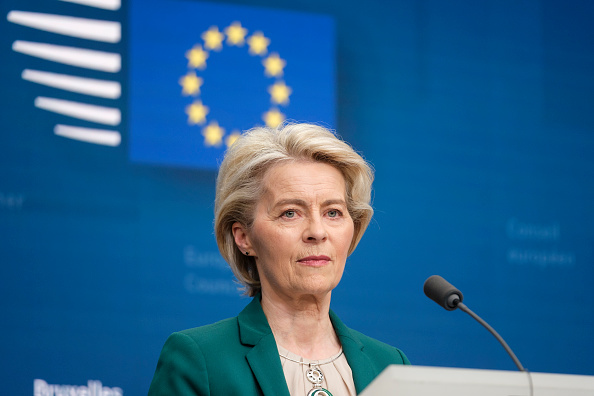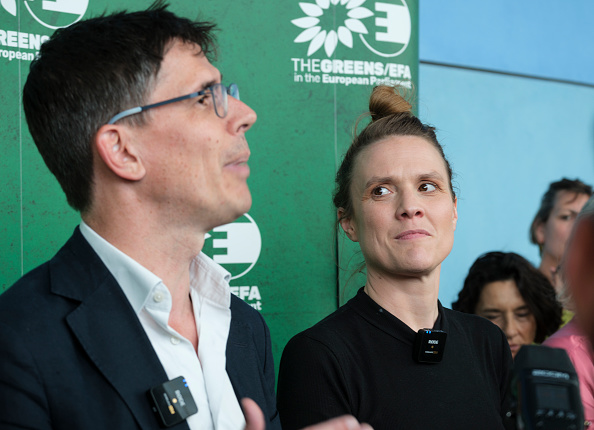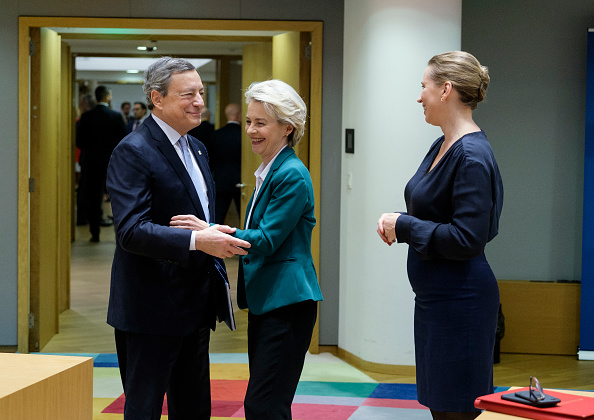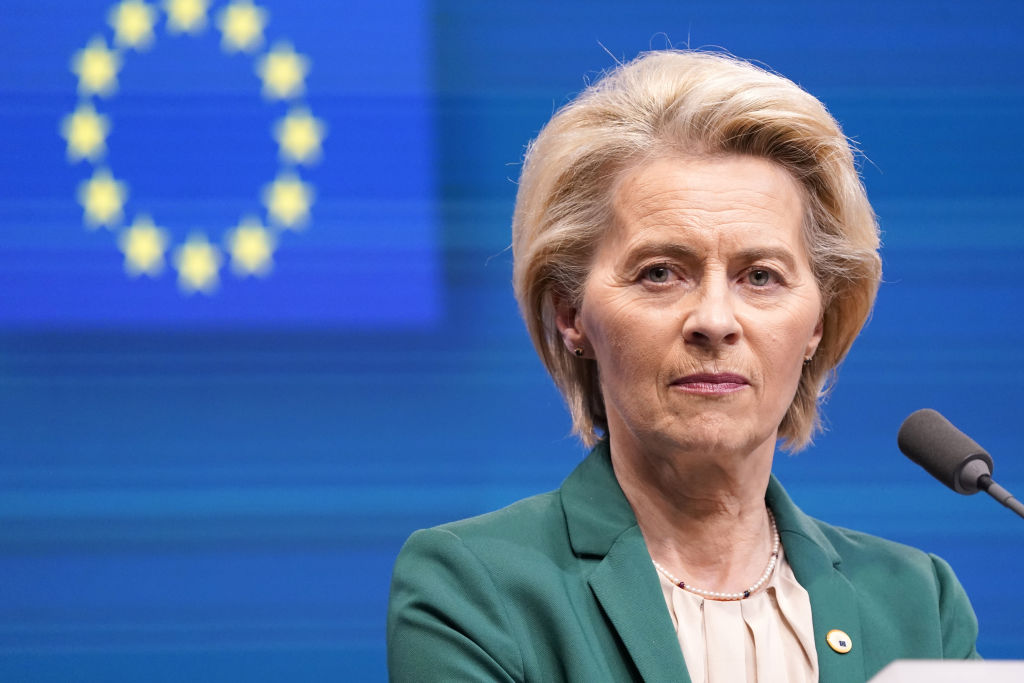Irish government sources feared Ursula von der Leyen would punish its next Brussels Commissioner with a poor appointment, after statements by Fianna Fáil MEPs during European elections they would not vote for her for a second term.
An aide to a Fianna Fáil MEP admitted to Brussels Signal June 24 it was a “sensitive” matter.
Ireland hoped for a senior economics appointment for its next European Commissioner, with its cabinet set to agree June 25 that Fianna Fáil’s Michael McGrath, who is currently finance minister, will take the place of Mairéad McGuinness.
McGrath will step down from cabinet immediately, even though the Commissioner role does not come available until November 1.
“The government’s view is that leaving now improves claim for a more senior portfolio,” said Irish political correspondent Gavan Reilly.
McGuinness, a Fine Gael politician, served from 2020 to 2024 as Commissioner in charge of financial services, financial stability and the capital markets union.
That role was a slight step down from her Irish heavyweight predecessor Phil Hogan, who was Trade Commissioner for nine months in 2019-2020 before resigning in a “golfgate” Coronavirus scandal.
Under the 2020 coalition agreement between Fine Gael and Fianna Fáil, McGuinness’s successor will come from Fianna Fáil. Party leaders agreed on the appointment June 24.
However, Fianna Fáil Dublin MEP Barry Andrews said on June 5 he would not vote for Ursula von der Leyen to receive a second term, echoing a statement the week before from his party colleague Ireland South MEP Billy Kelleher that he would find it “very difficult” to support her.
It was “a sensitive stage of the process,” so “I think it might be best if he says nothing”, the Fianna Fáil aide told Brussels Signal.
Andrews and Kelleher had criticised von der Leyen for siding too closely with Israel in the Israel-Hamas conflict, and for not ruling out post-election cooperation with the eurosceptic European Conservatives and Reformists (ECR) bloc.
McGrath admitted to Ireland’s Business Post June 23 that “the MEPs have made their position clear,” but added his own praise for von der Leyen, saying “I believe that her record should be considered In the round, and I think it is overwhelmingly positive”.
He also observed, pointedly, that Ireland will support von der Leyen’s second term in the European Council, saying “Taoiseach Simon Harris will be supporting her at the European Council meeting next week.”
In his new role, McGrath will be paid €310,922 a year, and relocation expenses and a family allowance for moving his family of seven to Brussels.
Ireland was unlikely to receive a brief that included either taxation or digital services, given its large number of US tech firms and Apple’s dispute with the European Commission over its 2004 arrangement with Dublin to pay close to zero corporate tax for ten years.
The top economic portfolio, the EU’s commissioner for economic affairs and taxation, normally has gone to larger countries, often from southern Europe.
Former Italian PM Paolo Gentiloni has held that post since 2019, succeeding France’s Pierre Moscovici.
Other economics roles include the intensely sought-after competition role currently held by Denmark’s Margrethe Vestager, and the internal market portfolio now occupied by France’s Thierry Breton.
It also is unusual for a country to receive the same role twice in a row, which would tend to exclude the financial services post, although Sweden managed the feat with the migration portfolio.
Other weighty economics roles at the Commissioner include the budget (now held by Austria’s Johannes Hahn) and trade (Phil Hogan’s former portfolio, with Latvia’s incumbent Valdis Dombrovski indicating he wants to move on to a role working on Ukraine’s reconstruction).
McGrath has said he would focus on competitiveness, economic growth, and supporting research and innovation, while opposing state aid which he says will favour bigger countries over smaller ones in a “subsidies race”.
He also criticised a push by France and Germany to harmonise EU taxation and create a more powerful EU markets supervisor, saying Ireland believed “tax sovereignty is important”.





